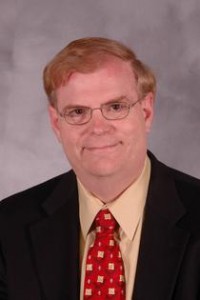Effective Treatments for Trauma Survivors with Harold Kudler, MD
 The effect of trauma is widely recognized as qualitatively different from stress and acknowledged as often resulting in lasting psychological and physiological changes. Life after September 11th makes effective training in this area all the more urgent since media reports of heightened risk for terrorism feed anxiety and can trigger symptoms in trauma survivors. Among combat veterans, posttraumatic stress disorder (PTSD) is a significant health problem and often complicated by major depression, substance abuse, job loss, family dissolution, homelessness, violence, or incarceration. Given that many new combat veterans of Afghanistan and Iraq will return home to North Carolina, it is important to consider what services will be of most help to them and their families. PTSD is also frequently experienced by survivors of sexual violence—a group significantly overrepresented in clinical populations. Drawing from his extensive research and clinical work with survivors of trauma, Dr. Kudler will provide expert advice on working with trauma survivors and offer specific strategies to promote readjustment and healing.
The effect of trauma is widely recognized as qualitatively different from stress and acknowledged as often resulting in lasting psychological and physiological changes. Life after September 11th makes effective training in this area all the more urgent since media reports of heightened risk for terrorism feed anxiety and can trigger symptoms in trauma survivors. Among combat veterans, posttraumatic stress disorder (PTSD) is a significant health problem and often complicated by major depression, substance abuse, job loss, family dissolution, homelessness, violence, or incarceration. Given that many new combat veterans of Afghanistan and Iraq will return home to North Carolina, it is important to consider what services will be of most help to them and their families. PTSD is also frequently experienced by survivors of sexual violence—a group significantly overrepresented in clinical populations. Drawing from his extensive research and clinical work with survivors of trauma, Dr. Kudler will provide expert advice on working with trauma survivors and offer specific strategies to promote readjustment and healing.
Harold Kudler is a psychiatrist at Duke University Medical Center and the Durham Veterans Affairs Medical Center and also coordinates mental health services for a three state region of the Department of Veterans Affairs (VA). He co-chairs the VA Under Secretary for Health’s Special Committee on PTSD that reports directly to Congress. He is an advanced candidate in adult and child psychoanalysis, co-founder of the Psychoanalytic Psychotherapy Study Center of North Carolina, and chairs the North Carolina Psychoanalytic Foundation. Dr. Kudler has presented on psychological trauma at many national and international meetings and is a member of the Board of Directors of the International Society for Traumatic Stress Studies. His expertise derives from clinical work with combat veterans, ex-prisoners of war, and survivors of other traumatic events.